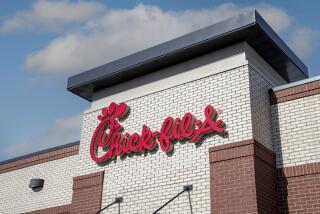Facebook’s latest ambition: becoming a hub for TV-style content
To make its mobile app as indispensable as possible, Facebook has introduced live streams, a booming virtual bazaar and free access to some of the best journalism.
But among the major missing pieces has been the kind of exclusive, Hollywood-style comedies, documentaries and dramas that are found on YouTube, Amazon, Netflix and, to a lesser degree, Snapchat. As subscriptions to cable TV decline, these online services have been there to capture the shift in subscription and advertising dollars.
Now, Facebook is making its latest play for the lucrative business by teaming up with online news outlets such as BuzzFeed and Vox to deliver videos that will contain commercial breaks.
The companies already make some of the most popular videos on Facebook, including mouth-watering cooking clips and animated shorts explaining topics in the news.
But the yet-to-be announced partnerships, first reported by Reuters on Wednesday, hope to take the videos up a notch, and potentially give Facebook content that can’t be found elsewhere.
That will include scripted shows lasting 20 to 30 minutes and shorter scripted and unscripted shows with episodes lasting about five to 10 minutes. Facebook will own the longer shows and license the shorter ones, sources told Reuters.
The social media giant will reportedly pay as much as $250,000 for the longer shows and $10,000 to $35,000 for the shorter variety, whose creators will receive 55% of any ad revenue generated.
It’s a small price to pay for a company with more than $32 billion in cash and marketable securities — compared with about $1.2 billion for Netflix — to establish itself as a prime destination in the new age of TV, analysts say.
“Facebook’s business model has been built around driving users to access Facebook multiple times per day,” said Brett Sappington, director of research of consulting firm Parks Associates.
Nearly every time they come, users see ads — and each video ad can bring in up to 10 times the cash of the standard image-and-text variety.
“This move is more about how to keep users immersed in the Facebook experience and watching more ads,” Sappington said.
Many users will use multiple apps to watch videos, including YouTube and Snapchat, but Facebook doesn’t want to cede too much ground.
Last year, Facebook tried to jump ahead of the video curve by prioritizing live broadcasting from smartphones before most of its major rivals save for Twitter. It even paid many of the same companies, including BuzzFeed, millions of dollars to experiment with live streams that led to viral sensations such as the exploding watermelon. But the efforts have struggled to gain sustained viewership, and Facebook has faced criticism for allowing its live-video technology to be used to broadcast violence and crimes.
Facebook has gleaned much from the streaming service — including data showing longer video content drives more usership, said Nick Cicero, founder and chief executive of Delmondo, which is providing Facebook’s media partners with analytics about the service.
“The longer a video, the more engaged people are,” Cicero said. “They’re staying longer and having more interactions.”
The new round of financing for media partners suggests Facebook may be backing down from Zuckerberg’s prized live-video initiative. The company appears to be going with a more tried-and-true approach of TV-like shows and more familiar live programming, primarily sports matches, including Major League Baseball.
Other partners in the new initiative include Attn:, which focuses on news video designed for mobile devices, and Group Nine Media, which owns digital properties such as Thrillist, NowThis and the Dodo.
None of the partners, including Facebook, agreed to interview requests Thursday. Sources at two of the companies speaking on the condition of anonymity confirmed the partnership, which is still being ironed-out to determine what kind of shows will be included.
“Facebook’s probably not trying to go with the Netflix or HBO approach by buying the next ‘House of Cards’ or ‘Game of Thrones,” said RBC Capital Markets analyst Mark Mahaney. “They’re not trying to hit home runs. They’re trying to hit a lot of singles.”
The Los Angeles area stands to benefit. Much of the new video is likely to be produced and edited in the region, where BuzzFeed and Vox have established presences and GroupNine recently opened an office.
Facebook founder and Chief Executive Mark Zuckerberg has long been rumored to be interested in original video content.During an earnings call this month, Zuckerberg said he was seeking compelling original content to drive users to the app’s video tab.
“The goal is going to be creating some anchor content initially,” Zuckerberg said. “And then the long-term goal is actually not to be paying for specific content like that but doing a revenue-share model once the whole economy around video on Facebook is built up.”
Like any new feature, Facebook will need to introduce the videos carefully so that it doesn’t interfere with the existing products, experts said.
“An important key to success will be in adding this content service to the existing Facebook experience in a way that does not alienate the current user base,” Sappington said. “Even small changes to the core experience can be a risky proposition. If users feel that they are being forced down a path without an ability to opt out, they will simply leave for an alternative.”
Times staff writer Tracey Lien contributed to this report.
Twitter: @dhpierson
Twitter: @peard33
More to Read
Inside the business of entertainment
The Wide Shot brings you news, analysis and insights on everything from streaming wars to production — and what it all means for the future.
You may occasionally receive promotional content from the Los Angeles Times.












